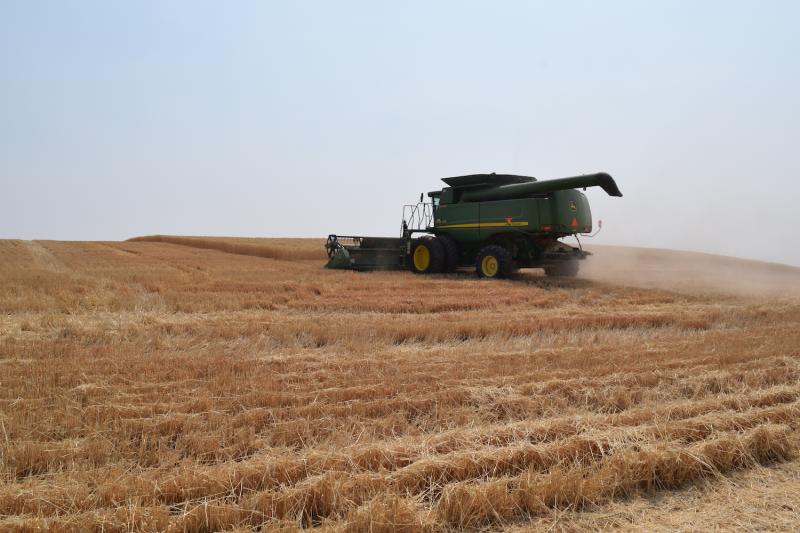Newhouse Introduces Bill to Block China from Purchasing American Farmland | Congressman Dan Newhouse


China’s American agricultural land holdings have increased over tenfold in the last decade, and at the beginning of 2020, investments from China held $2 billion of American agricultural land.

May 26, 2022 Press Release
WASHINGTON, D.C. - Today, Rep. Dan Newhouse (R-WA) released the following statement in advance of introducing the Prohibition of Agricultural Land for the People's Republic of China Act. This legislation would prohibit the purchase of public or private agricultural land in the United States by foreign nationals associated with the Government of the People's Republic of China. Additionally, the legislation would prohibit the same associations from participating in any United States Department of Agriculture programs except food safety inspections.
"We hail from the greatest country in the world, and there is simply no reason we should be reliant on a communist country like China for our food supply. If we begin to cede the responsibility over our food supply chain to an adversarial foreign nation, we could be forced into exporting food that is grown within our own borders and meant for our own use. Conversely, by bolstering American agriculture, we can create jobs, strengthen our economy, and enhance our national supply chain into the future," said Rep. Newhouse. "Simply put, we should be taking every action we can to strengthen our domestic production while preventing our adversaries from gaining a foothold in our supply chain, and I am proud to be leading that charge in Congress."
China's American agricultural land holdings have increased over tenfold in the last decade, and at the beginning of 2020, investments from China held $2 billion of American agricultural land.
Click here to read the full text of the bill.
Background:
- In September of 2013, the President of the People's Republic of China and General Secretary of the Chinese Communist Party, Xi Jinping, announced China's "grand political-economic project," now known as the Belt and Road Initiative (BRI) or Debt Trap Diplomacy. Over the last decade, President Xi has and continues to invest billions into the Silk Road Economic Belt and the 21st Century Maritime Silk Road in Asia, Europe, Africa, and the Americas.
- A 2018 report from USDA's Economic Research Service has found that Chinese investment in the agricultural sector has grown tenfold in the last decade.
- A 1978 federal law, known as the Agricultural Foreign Investment Disclosure Act, requires foreign entities to report transactions of farmland to the USDA's Farm Service Agency. The data covers years 1900 through 2016.
- Already, six states have laws banning foreign ownership of farmland. Those states are Hawaii, Iowa, Minnesota, Mississippi, North Dakota and Oklahoma State, but restrictions on Chinese land ownership can be circumvented by Chinese investors buying large U.S. corporations that own agricultural land.
- Last year, Rep. Newhouse introduced an amendment to the Agriculture, Rural Development, Food and Drug Administration, and Related Agencies appropriations bill to prohibit the purchase of agricultural land by the People's Republic of China (PRC) and make agricultural lands currently owned by the People's Republic of China ineligible for farm programs. This amendment was adopted by voice vote.
- The Prohibition of Agricultural Land for the People's Republic of China Act would direct the President of the United States to any necessary actions to prohibit public or private agricultural land in the United States by foreign nationals associated with the Government of the People's Republic of China. Additionally, the legislation would prohibit the same associations from participating in any Unites States Department of Agriculture programs except food safety inspections.
###
Issues:Agriculture



Back in the Irish potato famine there was enough food grown in Ireland to feed everyone in Ireland.
But the land belonged to England and the food grown in Ireland was loaded onto boats and shipped to England.